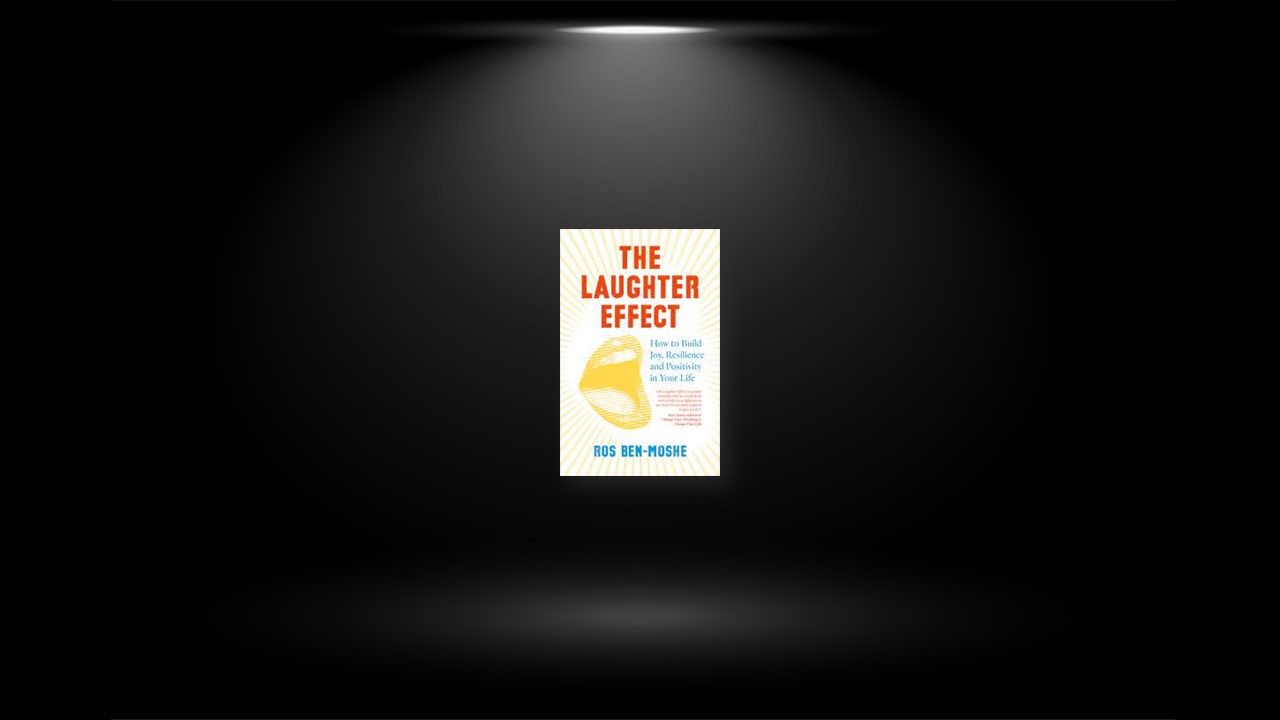We Laugh to Thrive
The Laughter Effect, encompassing the humble smile, can be witnessed in the earliest stages of our development. We ha ha before we da da or ma ma. No matter what your background, age or where you’re situated in the world, we all smile and laugh in the same language. A smile or shared laugh satiates an evolutionary survival role. It’s a critical inner resource bestowed to every one of us. A visual demonstration of love, a smile optimises our chances of survival by enhancing bonding with our caregivers and increasing the chance of timely attention. It’s, therefore, no surprise that laughter and humour were fundamental to human evolution.
The more positive early smiling and laughter interactions with main caregivers are, the safer and more loved a child feels. It lays the foundation for managing emotional responses through life. The stronger this laughter/smiling ‘scaffolding’ is, the better, otherwise a few bad experiences may result in it tumbling down, like a Jenga tower. This can lead to feeling less confident to laugh freely without fear of judgement, and create an unconscious suppression of laughter. Households dominated by anger, disinterest or disengagement often have fewer opportunities for a child to ‘muck around’, play and laugh. The Laughter Effect contributes to a calmer and more loving atmosphere in a household, which increases the chances of functional relationships later in life.
Smile and the Whole World Smiles with You
An important reason to work on our smile is because it enhances life satisfaction. Practising smiling for a prolonged period of time has the most impact – as demonstrated by the Swedish study – as it drugs the body with endorphins. And they’re not just in our brain. Twenty types of endorphins have been discovered in the central nervous system, flowing throughout our body. They’re clever little hormones, acting as neurotransmitters, transmitting electrical signals within the nervous system. Their impact on our health and immune system is substantial, modulating pain, temperature, cardiovascular regulation and respiration. Endorphins even assist gut physiology and childbirth and enhance immune system function by activating T-cells, which destroy defective or cancerous cells. They’re also indirectly involved in lowering stress, improving learning, memory and motivation.
No matter what’s going on in your world – whether you’re old, young, vibrant or unwell – activating your smile makes you feel better. It lightens the mind and energises the body. Cultivating an inner smile, with intention and attention, quashes an inner grudge. No matter the tone of your day, the challenges you are facing, or stage of life you’re at, as clichéd as it may sound, life is better when it begins and ends with a smile. It nourishes wellbeing and strengthens connection, rippling out into the world. To quote one of the author’s favourite philosophers, Snoopy: ‘Smile and the whole world smiles at you. Slobber and they’ll put you outside.’
Gleeful Gratitude
Our days are comprised of minutes, yet how many of these can be classified as uplifting, joyous or even mildly good? Consciously layering gratitude throughout our day multiplies micro-moments of joy, so these, rather than the not-so-great moments, define its beat. This leads to greater overall happiness without needing to wait for the bigger things in life to celebrate. Otherwise, as gratitude culture expert Steven Farrugia opined, it would be like going to a footy match and holding your cheer until the final whistle. With practice, intentional gratitude becomes as unconscious as placing one foot in front of the other when we walk. It’s like a torch that shines a light on the many wondrous little things in our everyday lives, no matter how seemingly small or insignificant.
When you embody gratitude, it seemingly manifests even more experiences to be grateful for. Similar to this example: Say you’re in the market for a new car. You’d love a Maserati but have to settle for a red Mazda. Once you start thinking about red Mazdas, magically they appear here, they appear there, red Mazdas appear everywhere. No doubt they’ve been around all along, but now unconsciously you’ve primed your brain to pay attention. Where attention goes, energy flows. It’s not so wonderful when it alerts you to the things you don’t like, though. Sadly, there’s a greater mental tug from an event with a negative charge than a positive one. But there’s no need to get down about it – it’s an evolutionary survival mechanism we owe a debt of gratitude. Otherwise, we’d risk running into the middle of a bustling highway, burning our hands on flaming hot saucepans, or binge-watching tedious programs on Netflix. The issue is when our brain constantly scours for problems to solve, even in the absence of an apparent threat. At times, we’re blind to our brain’s negative default, yet at other times it overpowers us and can be the source of sleepless nights. This can be explained by an in-built negativity bias playing out in our minds, or as author and neuropsychologist Rick Hanson explains, the brain is like Velcro (sticky) for the negative and Teflon (slippery) for the positive.
Consider this: at the end of the day you’re recounting half a dozen events or interactions. Three were positive, two were neutral and one was negative. Which one will you lie in bed thinking about? I’m guessing the negative one. Despite this interaction or event taking place in the past, your brain will continue responding in the only way it knows – sending out stress hormones mirroring the happenings in the mind’s eye.
Gratitude with the Laughter Effect awakens our conscious brain to pay attention to the many habits that are so engrained we rarely notice them. Late-night gorging on chocolate, incessantly reaching for your phone, or hitting the snooze button, again and again. And again. Only when we become aware of a behaviour, habit or thought pattern can we decide to accept or change it. In doing so, we become front-seat rather than back-seat drivers in our journey.
Self-Compassion with a Smile
No matter how important all our loved ones are, there’s no one more important than you. We all do foolish things from time to time, and nobody is perfect. So, you messed up here and there. You may feel a little fake or even a failure. Suppress your inner saboteur. Instead of feeling embarrassed or defensive, embrace your imperfections. It’s time to relinquish the mask of imperfection, embracing a reframe of ‘I’m perfection’. Please stop condemning the whole of you.
To be self-compassionate, first you must become. Bring to mind a true friend, mentor or even a higher being. What words would they offer you? Experiment in ways that feel well suited and authentic to you. Practise, and practise some more, until you might wobble but you don’t topple.
In time, just like me, you’ll notice you’re smiling more, feeling more inwardly joyful and content. You’ll be able to smile and laugh at your imperfections and be more lighthearted about your self-perceived flaws. Self-compassion with a smile offers a powerful opportunity to replace inner judgement with inner joy, inner loathing with inner loving, and inner grief with inner gratitude. Embedding the Laughter Effect into self-compassion rituals is a heart-set we can all aspire to. It’s one that welcomes and expands upon love in all forms. Nurturing inner-compassion is one of the kindest practices you can bestow upon yourself – because, as we’ve established, the gorgeous you, warts and all, matters. As motivational author, the late Louise Hay, inspired, ‘You’ve been criticising yourself for years and it hasn’t worked. Try approving of yourself and see what happens.’
Joyful Journaling and Positive Reframing
Joyful journaling is different from writing a diary. It integrates the Laughter Effect into the written word, providing another means to strengthen neural pathways towards humour, laughter and levity. It is an intentional way of writing to enhance positive personal growth and psychological resilience. It’s not about denying the exploration of adverse events or being superficially chirpy like so much on social media; it’s about doing our darndest to deny negative emotions taking up permanent residency. Or, as the saying goes, ‘Your issues become your tissues.’
It doesn’t require a radical shift where there’s no place for negative thoughts, but rather it’s a gentle nudge towards the more subtle, beneficial ones. It’s also a technique that captures and intensifies fleeting positive emotions. Joyful journaling hones our ability to seek and expand upon the light in a situation, no matter how infinitesimal that might be. Once the door towards levity has been opened, you can question your mind’s messaging and choose whether or not to believe what it thinks. In doing so, it launches you on a path of self-discovery to expand and develop qualities that serve you well.
Body and mind serve as a depository of emotion and memory. Unfurling our innermost thoughts into language can improve our mental state. In writing about a stressful event, your body will respond in kind. It will tense – teeth and jaw clenching, heart racing and your breath held. Recounting life’s pleasures, or the things that are going well in our day, encourages a sense of peace and calm. We exhale, sigh, unclench, untense, and even smile. That’s the Laughter Effect.


